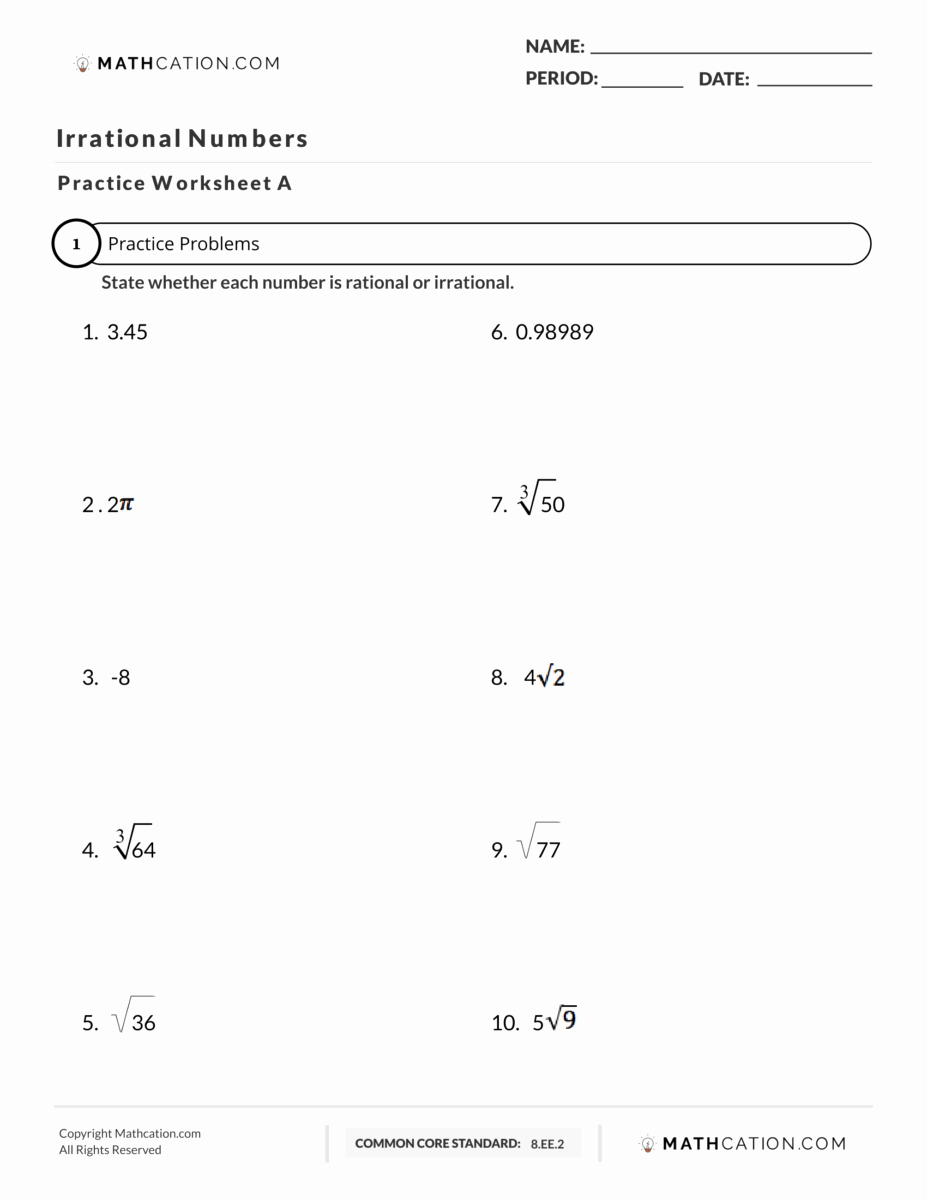Rational and irrational numbers are two different types of numbers that are crucial in mathematics. Rational numbers can be expressed as a fraction, where the numerator and denominator are integers. On the other hand, irrational numbers cannot be expressed as a simple fraction and have non-repeating, non-terminating decimal representations.
Worksheets on rational vs irrational numbers are essential for students to understand the difference between these two types of numbers and practice identifying them. These worksheets often include questions that require students to classify numbers as rational or irrational, perform operations with rational and irrational numbers, and solve problems involving both types of numbers.
Rational vs Irrational Numbers Worksheet
One common type of question on these worksheets is to determine if a given number is rational or irrational. Students may be given a decimal number and asked to identify if it can be expressed as a fraction or not. This helps reinforce the definition of rational and irrational numbers and allows students to practice identifying them.
Another type of question on these worksheets involves performing operations with rational and irrational numbers. Students may be asked to add, subtract, multiply, or divide rational and irrational numbers. This helps students practice working with both types of numbers and understand how operations differ when dealing with irrational numbers.
Furthermore, worksheets on rational vs irrational numbers may include word problems that require students to apply their knowledge of these numbers in real-life situations. These problems help students see the practical applications of rational and irrational numbers and improve their problem-solving skills.
In conclusion, rational vs irrational numbers worksheets are valuable tools for students to practice identifying, comparing, and working with these two types of numbers. By completing these worksheets, students can enhance their understanding of rational and irrational numbers and improve their overall mathematical skills.
